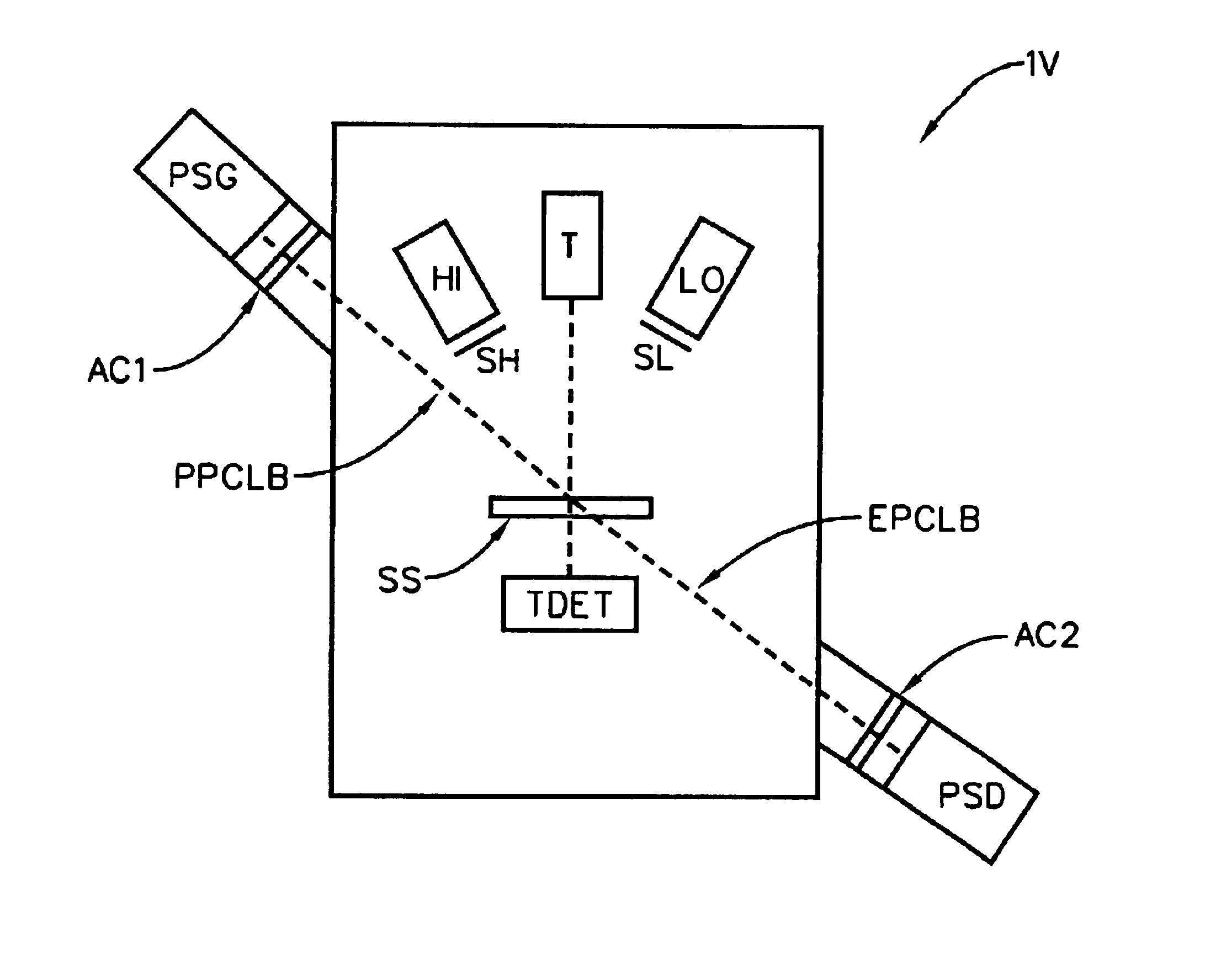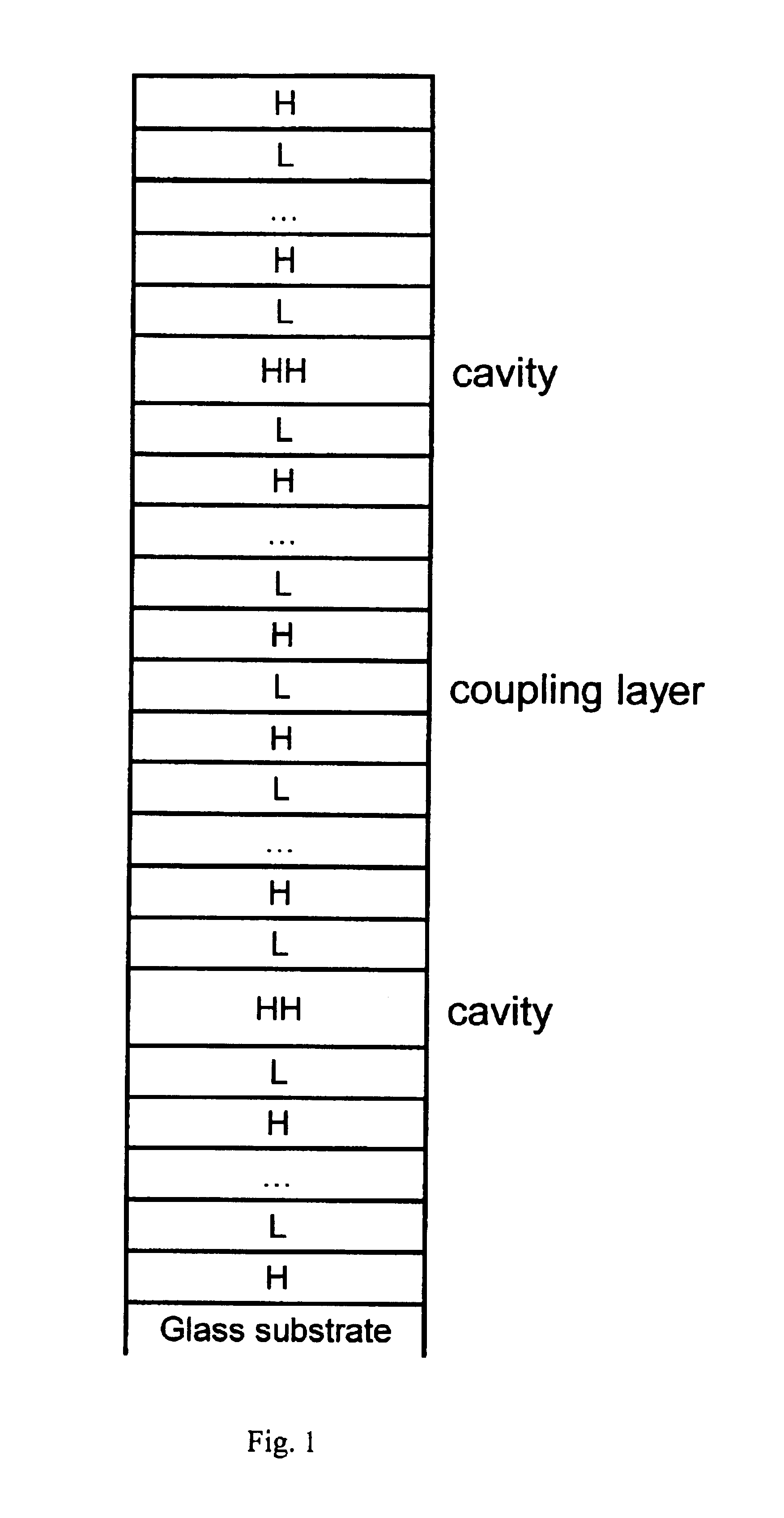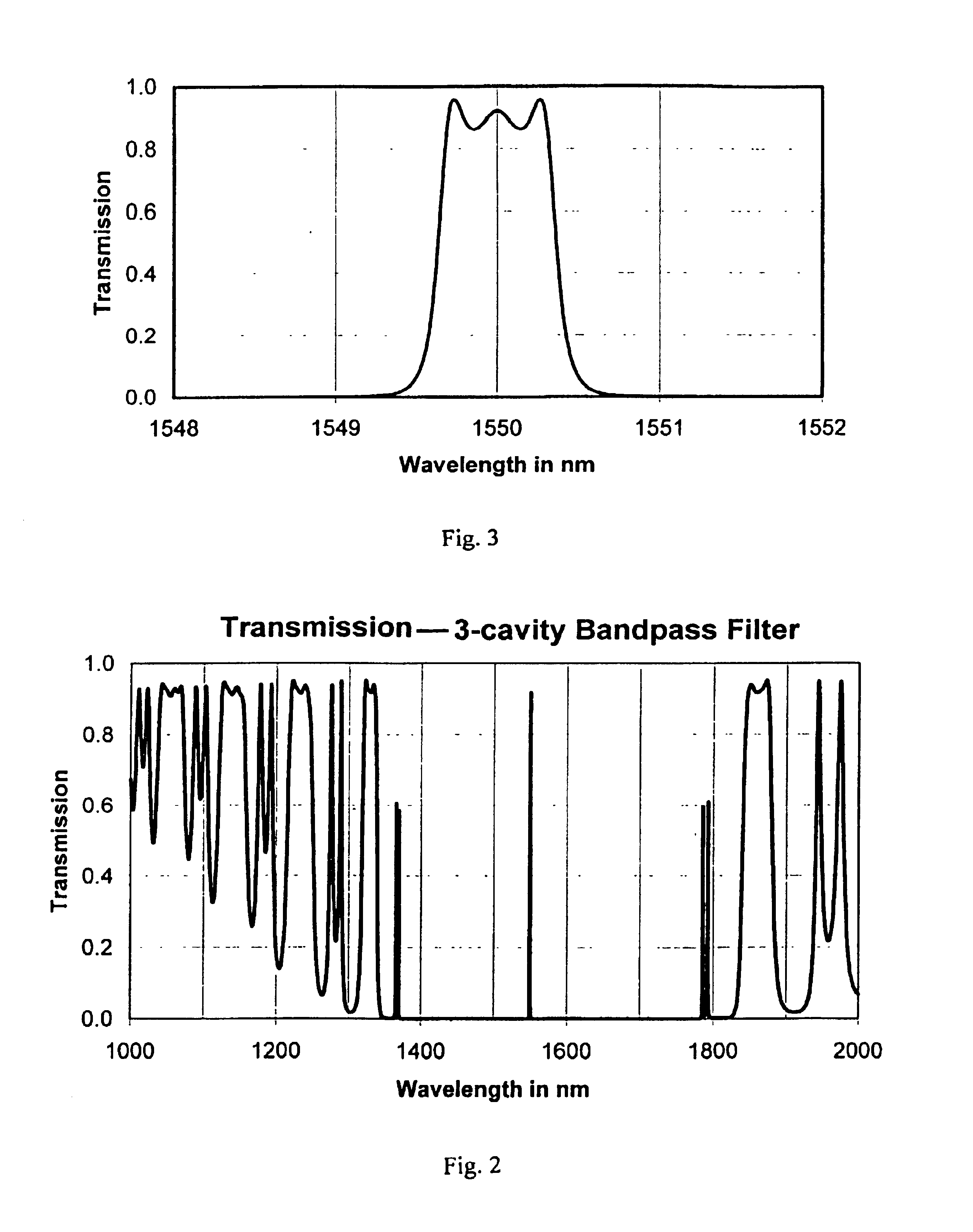Application of spectroscopic ellipsometry to in-situ real time fabrication of multiple layer alternating high/low refractive index filters
- Summary
- Abstract
- Description
- Claims
- Application Information
AI Technical Summary
Benefits of technology
Problems solved by technology
Method used
Image
Examples
Embodiment Construction
[0106]Turning now to FIG. 1, it should be appreciated that a schematic of a demonstrative 2-cavity all dielectric narrow Band-Pass optical filter structure is shown.
[0107]FIG. 2 shows the Transmission characteristic for a 3-cavity narrow Band-Pass optical filter (fabricated similar to the 2-cavity system shown in FIG. 1), over a range of 1000 to 2000 nm. FIG. 3 shows the Transmission characteristic for the 3-cavity narrow Band-Pass optical filter over a wavelength range of 1548 to 1552 nm.
[0108](Note that FIGS. 2 and 3 can be considered demonstrative of fabricatable stacked layer Band-Reject Filter characteristics as well, if the “Y” axis is labeled Reflection or Rejection instead of Transmission, and it is to be understood that the disclosed invention is similarly applicable to fabrication monitor / control of both Band-Pass and Band-Reject as well as to Varied Attenuation vs. Wavelength stacked layer Filters. The major distinction being that Reflection ellipsometry is applicable whe...
PUM
 Login to View More
Login to View More Abstract
Description
Claims
Application Information
 Login to View More
Login to View More - R&D
- Intellectual Property
- Life Sciences
- Materials
- Tech Scout
- Unparalleled Data Quality
- Higher Quality Content
- 60% Fewer Hallucinations
Browse by: Latest US Patents, China's latest patents, Technical Efficacy Thesaurus, Application Domain, Technology Topic, Popular Technical Reports.
© 2025 PatSnap. All rights reserved.Legal|Privacy policy|Modern Slavery Act Transparency Statement|Sitemap|About US| Contact US: help@patsnap.com



